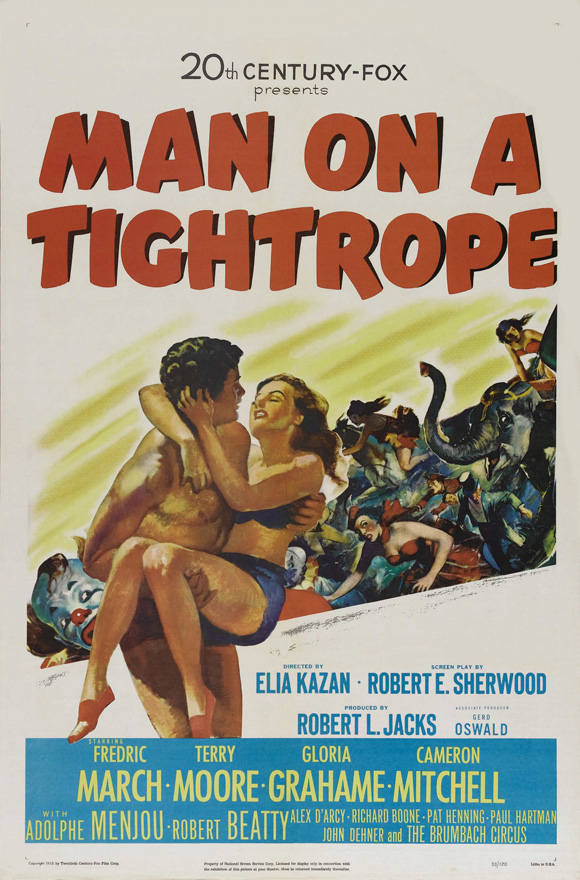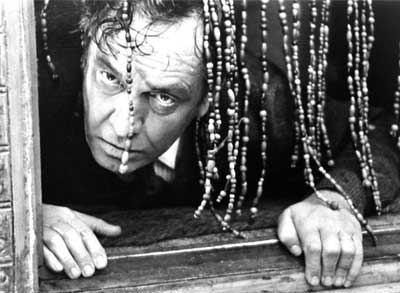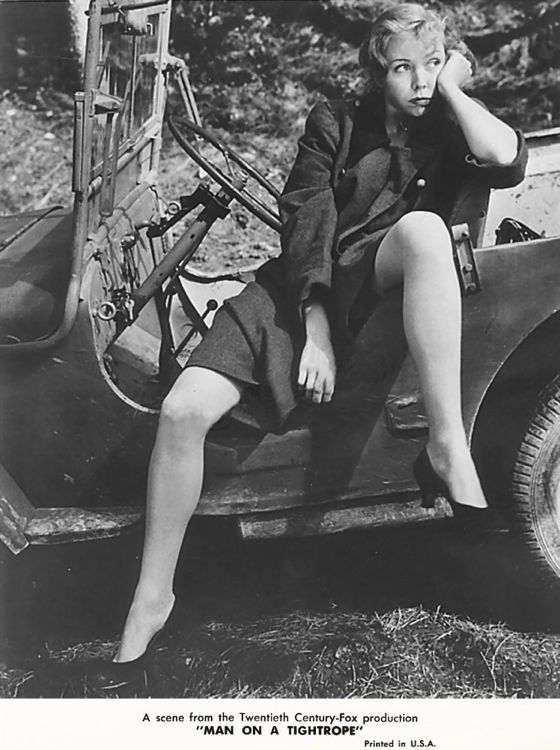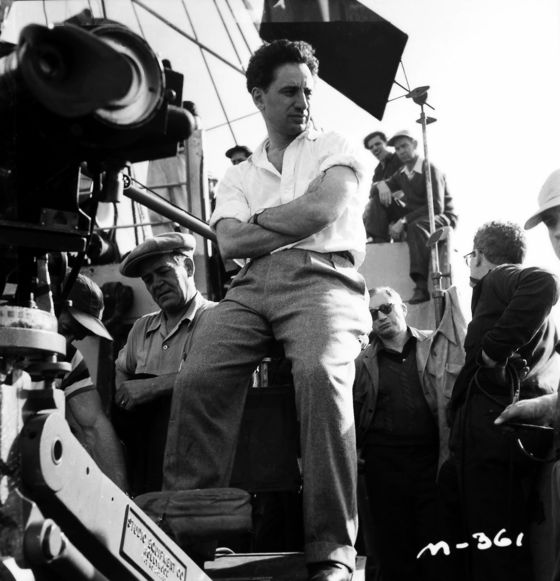
I’d never even heard of Elia Kazan’s Man On A Tightrope until I encountered it in the new Elia Kazan Collection DVD box set, so I was a little surprised to discover that it’s a minor masterpiece. Kazan dismisses it as a misfire in his autobiography, probably because Daryl Zanuck took it away from him and edited it himself. Kazan didn’t like what Zanuck had done with it, and when it flopped at the box office, he may have just wanted to forget it.
It doesn’t deserve to be forgotten.

If Ingmar Bergman had ever made a cold-war thriller, it would probably have looked a lot like this film. It’s about a shabby little circus troupe behind the Iron Curtain which plans to escape across the border to freedom in the West. According to Kazan, Zanuck cut the picture to emphasize the suspense element, losing a lot of Kazan’s nuance and atmosphere, but the truth is that it works as a thriller and has plenty of nuance and atmosphere — beautiful and surreal images of the circus world that elevate the film into an eloquent metaphor for artists struggling to escape restraint.

Frederick March gives one of his best performances as the leader of the circus — quiet, understated, touching. Gloria Graham is as vexing as she often was as his wayward wife and Adolph Menjou has a brief but effective turn as a Communist internal security operative.
The film was shot in Germany, mostly on location, and looks terrific, blending the poetic and the documentary with a sure eye.

It was the first film Kazan made after naming names before HUAC and earning the eternal enmity of progressives, but the interference with the arts depicted in the film echoes the interference attempted on American soil by the members of the American Communist Party whom Kazan “betrayed” to HUAC. It was this interference which caused Kazan himself to leave the Party in the 1930s, and Man On A Tightrope was a kind of defiant defense of his actions, then and later. It reminds us that, however opportunistic and hypocritical the Communist witch hunters may have been, they were hunting real witches — real and ruthless apologists for Stalin and Stalinist methods.

That ought to be taken into account in judging Kazan for “ratting them out”, but none of it needs to be taken into account in appraising Man On A Tightrope, which is a fine and masterful work of art.

I just want to know who the art director was that pitched that poster!
It's got something for everybody.
I'm glad to finally know what the movie was actually about.
I don't know if this was the first ad campaign or a desperate last-ditch attempt to lure somebody into the theaters after it opened and tanked. Gives no idea whatsoever about the actual film — perhaps on purpose.